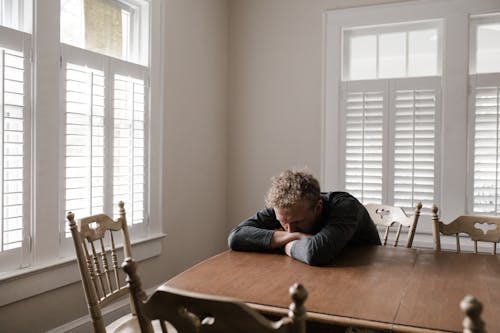In this era of the 21st century, every second person is dealing with stress, anxiety, and depression. But where this stress comes from? How does it affect our mental health? Is stress good or bad? What are the types? Is stress a risk to our lives? What are the reasons behind getting stress? These are the major questions that make everyone worry.

What is stress?
Stress is the natural response of a human being to any condition or demand. This condition can be a sudden tense situation, or any demand, like your performance at your school, workplace, or anywhere else.
Stress is really bad for our health, as it affects both the physical and mental condition of the human body. In the beginning, it is easy to do away with stress. But if you don’t pay attention, and ignore it, it can undermine a human brain and can cause the worst conditions.
Examples of stress:
From normal to critical situations, stress can happen anywhere, anytime. Some examples of stress are below:
• Getting married without your choice
• Nights before the exam
• Emotional problems
• Moving to a new place
• Death of any loved one
• Family politicians
• Being over-emotional
• Financial problems or losing your job
• Relationship problems
• Usage of drugs
• Imbalance diet, like too much eating or not eating at all
• Sleeping disorders
Following are some important things that everyone should know about stress:
1. Is stress bad or good?
Stress is something that can affect you in both ways, like positive and negative. A little stress about something like about your job, about your work, is a kind of good as it keeps you motivate and attentive about something.

Short-term stress is really beneficial, as it knocks your brain, increases your potential, and makes you emotionally strong and concerned.
But if your stress is too long and stays for weeks and months, then it’s really an alarming sign.
Long-term stress can cause severe mental and physical problems like heart diseases, emotional attacks, asthma, anxiety, blood problems.
Stress is so damaging that it can even affect your body parts. It causes some people to turn their hands and some people to lose their ability to speak.
2. Does stress affect everyone?
People of any age face stress from time to time. It can affect you anytime. For some people, it can stay for a brief interval of time. But stress can stay for the long term too, or it can happen repeatedly from interval to interval.
So it doesn’t matter if stress affects everyone, or it stays for a long or short time. The thing to concern about is how you deal with your stress. People who are really apprehensive about their mental health, and cope with it powerfully, easily get rid of it and recover promptly as compare to others.
3. What are the physical effects of stress?
Long-term stress makes you sick physically. It causes several diseases and can make a person physically disabled. Physical stress can cause the worst conditions if you don’t deal with it properly.
Here are some physical effects of stress:
• weak eyesight
• Grinding teeth
• Turning of hands
• cold hands and feet
• Joint strain
• chest pain
• insomnia
• fast heart beating
• dry breathing
• digestion disorders
• less energy
• gritted jaws
Else of these, stress can even harm your ■■■■■ senses like hearing, tasting, and breathing. You may feel weak physically. Physical stress can be treated by taking proper diet and sleep.
4. What are the mental effects of stress?
Although, physical stress is dangerous, however, mental stress can cause more severe and alarming conditions. Usually, long-term stress ends up making you mentally ill.
Below are some mental effects of stress:
• Lack of confidence
• Shyness and nervousness
• Easily getting irritated and disturbed
• Blaming yourself
• Being alone and avoiding people
• No self-control
• Over-whelmed reactions
• Low self-esteem
• Depression, anxiety, and mental attacks

Physical illness can be easily treated with the help of diet and treatment. But mental stress is somehow difficult to deal with. You must have to make your mind, should be encouraged and energized enough to cope up with mental breakups.
5. What are the cognitive effects of stress?
Short-term stress normally affects cognitive problems. These problems are not a big issue, but sometimes they are kind of irritating, weaken you emotionally, and harm your emotional stability.
Here are some cognitive effects of stress:
• Memory loss, like forgetting people’s names and faces.
• State of confusion
• Deficiency of co-ordination
• Losing your attention
• Negative thinking
• Disorganization
• Peer decisions
• Battling thoughts
Cognitive stress may happen after middle age. For higher age people, like age limit from 7-0 and above are more likely to affect by cognitive stress. For old people can cause risky conditions like severe medical problems and mental disorders.
Cognitive stress can be treated by regular exercises, like morning and evening walks, yoga, deep breathing, and other refreshing activities.
Stress management techniques:
Here are some techniques, that can really help in maintaining your stress and mental health:
1. Exercise:
Exercising daily is key to a healthy body and brain. Even you don’t have any kind of stress, exercising is the first step for staying away from stressful situations.
You can select any exercise according to your interest and stamina, like yoga, cycling, bridges, and deep breathes. Outdoor games are the best ones as they keep you mentally active, energetic, and powerful along with physical as a bonus.
So people must adopt habits of daily exercise if they want to reduce stress. Exercise is the best regular dose of mental and physical stress.
2. Reduce the consumption of drugs and alcohols:
A large amount of drug intakes is the major cause of strength. People usually take drugs to relax. No doubt, drugs can make you feel relaxed and calm your mind, but these things are not really helpful to get rid of success.

There are many drugs available as anti-depressants but they are of no benefit. They can make you feel better for some time, but end up leaving the worst effects. Once you get into the habit of using anti-depressants, it becomes difficult to get rid of it.
So instead of taking these drugs, try to focus on other physical activities. They don’t have any side effects and can be really helpful in preventing stressful situations.
3. Proper diet:
Nutrition is the prior thing to maintain your mental as well as physical health. If you are active, exercising daily, and consuming enough nutrients, then there are fewer chances of mental stress or another physical disease.
A balanced diet keeps you healthy and strong, makes your brain’s performance batter, and helps you to face challenging situations with better stamina. It maintains your immune system, which prevents you from emotional attacks ad other mental disorders.
4. Meditation and breathing:
Meditation is a method that helps you to relax your mind and senses. It promotes relaxation by slowing down your heartbeat. During meditation, you concentrate on thoughtfulness, keeping your mind free of tense thoughts.
For centuries, meditation is helping people to throw away anxiety, depression, and stress. Deep breathing is also a kind of meditation that helps you to calm your breathing system.
Everyone should practice 10-15 minutes of meditation per day. Also, try to take deep breathes several times a day. It will surely help you to get rid of stress by calming your mind and brain.
5. Naps:
Nowadays, every second person has a hectic routine all day. Most people work 10-15 hours continuously which affects their mental health badly. So people must take short sleep gaps to rest their bodies and to relax their brains.

Afternoon naps are really a bonus for preventing stress. Everyone must take 20-30 minute naps that will enhance their physical and mental well -being.
6. Identify your stress type:
There are different types of stress. A person must know what kind of stress he/she is dealing with. Not all types of stress are bad for human health. Therefore one should have proper knowledge about his/her stress type. It will help you to treat your stress adequately.
So notice symptoms of your stress and then figure out your stress type. Not all stresses need to be cured by a therapist or psychiatrist. You can deal with it at your home place too. So before treating your stress, must notice what kind of stress you have.
Frequently asked questions
People usually ask a lot of questions about stress and mental illness. Here are some frequently asked questions
1. How do you know if you are having stress?
There are hundreds of symptoms that can help you to diagnose if you are depressed or not. Normal symptoms are panic attacks, laziness, imbalance of nutrition, irritability, and sick mental conditions.
But these symptoms vary from one kind to another with different intentions. The best method to diagnose stress is a proper appointment with a psychiatrist. So if you feel any symptom of stress, prepare yourself for an appointment and don’t feel hesitant for treating your stress.
2. What is the difference between stress and sleeping disorders?
Not consuming enough sleep hours affects your mental health badly. You feel lazy, demotivated, depressed, and tired. Chronic stress leads to excessive levels of cortisol that really creates a bad effect on your sleeping.
Most people use night pills to manage their sleeping hours. But pills are not a true solution. Instead of that, try to maintain healthy habits like exercising and nutrition. These are slow but long term solutions for preventing stress.
3. Do you sleep, when feeling depressed?
If someone is facing long-term stress that it can really create the worst effects on mental as well as physical health. For long term stress, daily based naps are a good dose. These naps will help you to calm your mind time by time. That’s really helpful in relaxing your mental stress.
On regular basis, if you ever feel tired or depressed, don’t forget to take a nap at that time. It will prevent you from severe and long-term stress. One must consume 6-7 hours while sleeping daily.
4. How to stop overeating when depressed?
Over-eating is really a bad thing that most people do after being depressed. So avoid over-eating whether you are depressed or not. It can create the worst conditions for your body.
Try to maintain a proper diet plan while considering maintenance calories. Avoid junk food and increase the intake of fresh fruit and veg juices. Don’t deprive yourself and always go for a walk after a heavy dinner or breakfast.
5. Does banana help with stress?
Potassium-rich foods are really helpful in preventing stress. Foods like banana, pumpkin seeds, coffee, and green tea are the best foods to relax your mind when feeling depressed. Coffee and green tea are really kind of bonus for preventing stress.
But don’t overtake these foods. You can take them twice a day as a regular diet. Access amount to these foods can create a negative effect on your mental and physical health.
Conclusion:
Stress is the in-built human response to any situation or condition. These conditions and situations can be both normal and dangerous ones. Not every stress is bad. Sometimes a little bit of stress keeps you energetic and motivated.
Stress affects a human being in different ways like physically, mentally, and emotionally. One must know how to treat all kinds of stresses. Different types of stresses need to be cured in different ways.
Everyone must adopt some healthy routines to maintain their physical and mental health. Exercise and proper diet is the best key to prevent stress. Before treatment, always try to know what kind of stress you have. It will help you to cure your stress in a better and proper way.
Read articles
How does stress affect us psychologically?
Get to know the Psychological symptoms of stress
What is the positive response to Psychological stress?